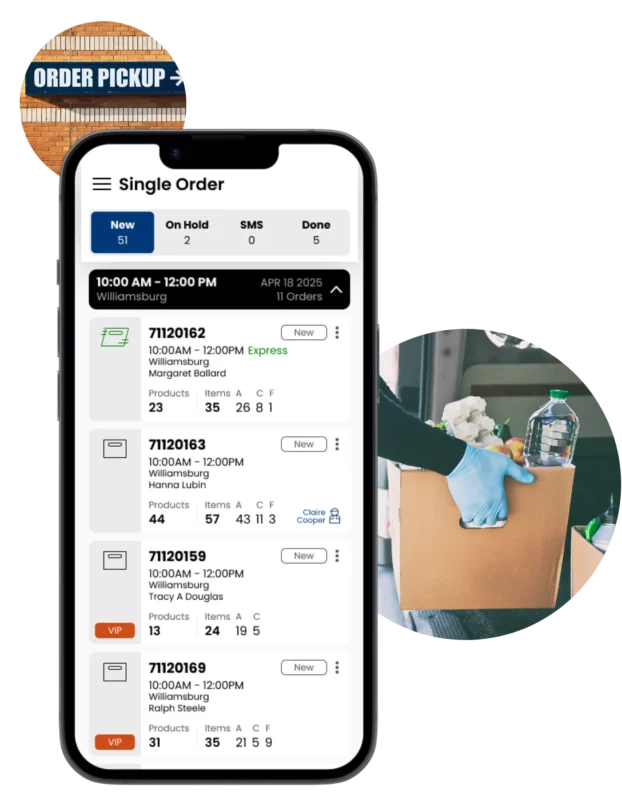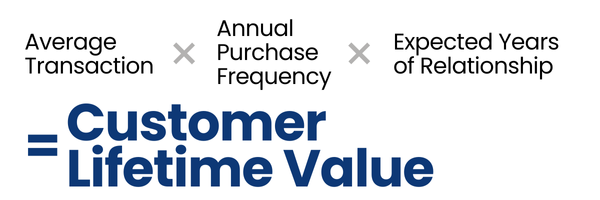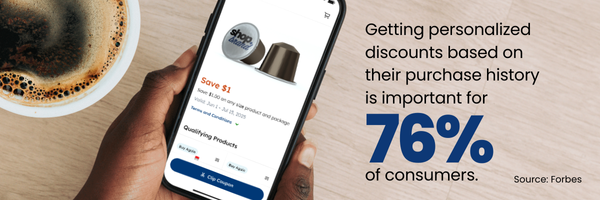The Expert Strategy To Improve Operational Efficiency Using A Digital Experience Platform
 Merc Atus
Merc AtusTable of contents
- What is a Digital Experience Platform (DXP)?
- The Role of a Customer Data Platform in Modern Digital Engagement
- Transform Customer Data Into Sales Growth
- How DXPro Enhances E-Commerce, Fulfillment, and Digital Engagement
- The Power of Unified Data Intelligence in Building Loyalty
- Why Choose a Digital Experience Platform (DXP) for Your Grocery Business?
- Conclusion
- Frequently Asked Questions

A digital experience platform is a comprehensive technology solution that integrates multiple digital channels, tools, and services into a unified environment, enabling businesses to deliver personalized, consistent, and engaging customer interactions at scale. It brings together web, mobile, and in-store touchpoints into one connected ecosystem, ensuring that customers receive relevant and seamless experiences at every stage of their journey.
The Digital Experience Platform for Grocery offered by DXPro is purpose-built to address the unique demands of food retail. By combining the strengths of a customer data platform with advanced engagement tools and grocery-specific e-commerce features, DXPro helps grocers unify their operations, better understand shoppers, and provide more targeted, timely, and value-driven interactions.
At its core, DXPro functions as both a customer data platform for e-commerce and a high-performance platform for grocery operations. It centralizes valuable shopper insights, applies predictive intelligence, and automates personalized engagement to drive repeat orders, larger baskets, and higher customer loyalty—all while protecting profit margins.
This all-in-one digital experience platform empowers grocery retailers to compete in a digital-first marketplace by turning data into actionable insights, orchestrating high-impact engagement strategies, and managing commerce from storefront to fulfillment with unmatched efficiency. Through DXPro, grocers can confidently scale their business while delivering the connected, customized shopping experiences customers expect.
What is a Digital Experience Platform (DXP)?
A digital experience platform is a unified software solution that brings together customer data, engagement tools, and commerce capabilities in a single environment. It allows businesses to manage and deliver consistent, personalized experiences across web, mobile, and in-store channels. With an integrated approach, companies can improve customer retention, increase order value, and create efficient digital operations.

A Quick Guide to How a Digital Experience Platform for Grocery Works
A digital experience platform for grocery integrates core capabilities that are designed specifically for the food retail sector. It combines a customer data platform for e-commerce with engagement features and commerce tools to support the complete shopper journey.
Here are some of the benefits:
Data Unification: A customer data platform consolidates shopper data from multiple touchpoints, providing a complete profile of customer behavior and preferences.
Real-Time Engagement: AI-driven personalization uses current customer activity to adjust promotions, search results, and recommendations instantly.
Commerce Engine for Grocery: The platform handles the complexity of grocery orders, substitutions, and payment types while providing flexible fulfillment options.
By combining these capabilities, a platform for grocery ensures retailers can manage every digital interaction from one connected system, making customer engagement more relevant and commerce more efficient.
How DXP Differs from a CMS
A digital experience platform is different from a content management system (CMS) in both scope and function.
While a CMS is designed to store, manage, and present content, a DXP manages the full digital journey and connects directly with commerce and data systems. This means that every customer interaction—whether browsing products, reading a promotion, or completing checkout—is informed by unified data and designed to improve business outcomes.
With DXPro, grocery retailers can operate on a single platform that delivers personalization, manages e-commerce complexity, and retains control over brand and customer data. This unified approach helps reduce operational gaps and creates opportunities for meaningful, profitable customer engagement.
The Role of a Customer Data Platform in Modern Digital Engagement
A Customer Data Platform (CDP) is a centralized solution that collects and organizes customer information from multiple sources to create a unified, accurate profile for each shopper.
Unlike fragmented systems, a customer data platform brings together purchase history, browsing behavior, loyalty activity, and engagement data in one place. This allows businesses to understand customer needs more clearly and deliver relevant, consistent experiences across every channel.
For grocery retailers, this approach supports stronger relationships, higher order values, and better retention rates. Retailers can anticipate shopper needs, respond in real time, and strengthen loyalty while protecting margins in a competitive retail environment.
CDP Functionality in DXPro
The DXPro digital experience platform for grocery integrates a full customer data platform for e-commerce functionality into its core. This gives retailers direct access to insights that can shape targeted engagement and personalized offers without the complexity of multiple disconnected tools.
Data Unification: DXPro merges e-commerce activity, in-store transactions, loyalty data, and marketing interactions into a single, actionable customer profile.
Behavior Tracking: The platform tracks shopping patterns, purchase cycles, and churn indicators to help retailers act before a customer disengages.
Segmentation and Targeting: Built-in segmentation tools allow precise audience grouping, enabling promotions and campaigns to reach the right shoppers at the right time.
By integrating a customer data platform into the digital experience platform, DXPro helps grocery businesses shift from reactive marketing to proactive engagement.
Transform Customer Data Into Sales Growth
A digital experience platform like DXPro plays a central role in turning embedded customer data into profitable actions. It enables grocery retailers to capture, unify, and analyze valuable insights that inform smarter engagement strategies. With the right platform, every shopper interaction can become an opportunity to build loyalty, increase order value, and safeguard profit margins.
Through predictive personalization and intelligent data use, DXPro turns raw information into a practical tool for growth. By aligning customer engagement with real behavioral data, grocers can build stronger relationships and increase lifetime value while maintaining operational efficiency.

Predictive Personalization for Better Engagement
Predictive personalization uses real-time shopping behavior to tailor offers, recommendations, and promotions to each customer’s unique preferences. This approach goes beyond static segmentation, delivering contextually relevant suggestions at the exact moment they are most likely to convert.
Data-Driven Offers: Uses precise purchase history to identify optimal timing for promotions and encourage repeat buying. This ensures that offers align with individual shopping cycles for greater relevance.
Relevant Recommendations: Suggest products that align with both current browsing and historical buying patterns. This drives higher conversion rates by surfacing items customers are more likely to purchase.
Engagement Triggers: Monitors churn indicators such as reduced visit frequency or lower basket value. This enables timely re-engagement campaigns to bring customers back before they stop purchasing entirely.
By applying predictive personalization, grocers can ensure that customers feel recognized and valued, which encourages repeat visits and larger baskets.
Smarter Insights Through Embedded Intelligence
DXPro’s customer data platform for e-commerce integrates data collection and analytics directly into the shopping experience. This integration gives grocers access to predictive metrics that are actionable in real time.
Churn Risk Tracking: Flags early warning signs of customer attrition using behavioral and transactional patterns. This allows marketing teams to take corrective action before revenue is lost.
Offer Effectiveness: Measures performance of individual promotions against conversion benchmarks. This helps identify which campaigns deliver the best ROI and where adjustments are needed.
Intent Monitoring: Tracks specific category interests and product page engagement over time. This data supports targeted campaigns that align with customer preferences.
With these insights, decision-making becomes faster and more accurate, allowing retailers to focus resources where they have the greatest impact.
How DXPro Enhances E-Commerce, Fulfillment, and Digital Engagement
A digital experience platform like DXPro is designed to streamline grocery-specific operations while delivering meaningful customer interactions. It brings e-commerce, fulfillment, and digital engagement into one connected environment. This ensures that retailers can provide fast, reliable service and context-based communication while increasing operational efficiency.
Here are some of the other benefits:
Streamlined Order Fulfillment
Efficient order fulfillment is critical for maintaining customer satisfaction and profitability. DXPro includes intelligent workflows to handle grocery-specific complexities like substitutions, order accuracy, and multiple delivery methods.
Smart Slotting: Assigns picking and delivery time slots based on real-time capacity and demand to reduce bottlenecks and delays. This ensures every order is processed in an optimal sequence.
Integrated Fulfillment Tools: Connects picking, packing, and delivery functions in one interface, allowing for smoother coordination between in-store teams and third-party providers.
Real-Time Order Tracking: Provides visibility into each order’s status from confirmation to delivery, enabling quick resolution of any issues and improving customer trust.
By connecting these processes, grocers can reduce cost-to-serve while maintaining order accuracy and delivery speed.
Personalization in Product Recommendations
DXPro uses predictive algorithms and a customer data platform for e-commerce to tailor product suggestions. This creates an individualized shopping experience that supports upselling and cross-selling opportunities.
Behavior-Based Suggestions: Uses purchase history and browsing patterns to recommend relevant items that fit the customer’s buying habits. This increases the likelihood of additional purchases.
Contextual Promotions: Delivers offers that match a shopper’s current needs, such as seasonal products or items related to past purchases. This makes promotions feel timely and relevant.
Category-Specific Highlights: Surface high-margin or trending items in categories the shopper frequently visits, helping increase basket size without overwhelming the customer.
This level of personalization leads to higher engagement and increased order values.
Intelligent Targeting for Offers
Precise targeting ensures that marketing spend generates measurable returns. DXPro uses embedded intelligence to segment customers and deliver offers where they will have the most impact.
Audience Segmentation: Groups customers by purchase behavior, lifecycle stage, and preferences, allowing marketers to tailor campaigns to each group’s interests.
Churn Prevention Campaigns: Identify customers at risk of lapsing and send personalized offers designed to re-engage them before they stop shopping.
Performance Monitoring: Tracks the success rate of each offer in real time, so ineffective promotions can be quickly adjusted or replaced.
With intelligent targeting, retailers can improve conversion rates while reducing wasted promotional spend.
The Power of Unified Data Intelligence in Building Loyalty
A digital experience platform like DXPro brings all customer information into one central environment. By unifying data from multiple touchpoints, DXPro helps retailers understand customer preferences, habits, and buying cycles. This consolidated intelligence enables brands to design personalized experiences that resonate with shoppers and encourage repeat business.

By combining unified data intelligence, predictive analytics from AisleOne Intelligence, and precise smart segmentation, DXPro enables grocery retailers to deliver relevant, timely, and high-value experiences that build long-term loyalty and grow revenue.
Unified Data Intelligence
DXPro’s unified data intelligence capabilities connect every customer interaction—online or in-store—into a single, actionable view. This gives retailers the ability to create a continuous and relevant customer journey.
These are some of the features of DXPro:
Centralized Customer Profiles: Combines purchase history, engagement data, and behavioral signals into one profile, making personalization more accurate.
Real-Time Data Flow: Updates customer information instantly so every touchpoint, from product recommendations to offers, reflects current behavior.
Cross-Channel Integration: Links online, mobile, and in-store interactions to deliver consistent messaging across all channels.
This unified approach ensures retailers have the insights needed to strengthen customer loyalty.
AisleOne Intelligence
AisleOne Intelligence is DXPro’s predictive insight engine, designed specifically for grocery retail. It leverages historical and live data to anticipate customer needs before they arise.
Predictive Insights: Analyzes purchase cycles and predicts when customers are likely to buy again, helping retailers send timely offers.
Product Affinity Mapping: Identifies items that are frequently purchased together, making recommendations more relevant and profitable.
Customer Lifecycle Tracking: Detects shifts in engagement levels, enabling quick action to retain customers showing signs of churn.
These capabilities help retailers keep customers engaged over the long term.
Smart Segmentation
DXPro uses advanced segmentation to group customers by attributes that matter for marketing and merchandising. This ensures that communication is both targeted and meaningful.
Behavior-Based Segments: Groups customers by purchase frequency, order value, and product preferences.
Offer Responsiveness Segments: Identifies shoppers most likely to respond to discounts, seasonal promotions, or loyalty rewards.
Lifecycle Stage Segments: Targets new, active, and at-risk customers differently to maximize retention and revenue.
Smart segmentation ensures that each interaction drives value for both the customer and the business.
Why Choose a Digital Experience Platform (DXP) for Your Grocery Business?
A digital experience platform integrates data, engagement, and commerce in one connected ecosystem, making it an essential technology for grocery retailers operating in a competitive, digital-first market.
Unlike siloed solutions, a digital experience platform for grocery like DXPro allows retailers to unify their customer data, create personalized experiences, and manage end-to-end e-commerce operations without juggling multiple disconnected systems. This unified approach allows grocers to deliver consistent, relevant interactions that keep customers coming back.
Choosing a digital experience platform like DXPro means more than adopting new technology—it’s about creating a connected, scalable, and intelligent system that supports every stage of the customer journey. With its flexibility, strong integration capabilities, and grocery-specific features, DXPro enables retailers to compete effectively and grow in a rapidly shifting market.
Conclusion
A digital experience platform like DXPro delivers a connected approach to grocery retail, bringing together customer data, engagement, and e-commerce into one cohesive system. By centralizing these elements, grocers can operate more efficiently, provide consistent experiences across all channels, and make data-driven decisions that directly impact sales and customer loyalty.
Implementing DXPro offers grocery businesses significant advantages. The platform’s grocery-specific commerce engine supports complex order flows, payment flexibility, and real-time fulfillment coordination. Its customer data platform for e-commerce capabilities allows precise audience segmentation and predictive personalization, helping retailers drive larger basket sizes and increase repeat orders. With built-in integration options, DXPro adapts to existing systems, enabling growth without operational disruption.
Grocery retailers ready to stand out in a competitive market should take the next step. Get a demo of DXPro to see how it can optimize your operations and deliver meaningful customer engagement. Learn more about how this digital experience platform can position your business for sustainable growth and long-term customer loyalty.
Frequently Asked Questions
1. What is a Digital Experience Platform (DXP)?
A Digital Experience Platform (DXP) is a unified technology framework that integrates customer data, content, engagement, and commerce capabilities to deliver seamless, personalized experiences across all digital channels. It helps businesses manage the complete customer journey from first interaction to purchase and post-sale engagement.
2. How does a DXP differ from a traditional CMS?
While a traditional content management system (CMS) focuses on creating and publishing content, a digital experience platform combines content delivery with advanced capabilities like customer data integration, personalization, e-commerce, and analytics. This makes it more suitable for businesses that want to manage the entire digital customer experience rather than just their website content.
3. What are the benefits of using a DXP for customer engagement?
A digital experience platform enables precise personalization, real-time interaction, and omnichannel engagement by leveraging customer insights. It improves retention by delivering relevant content and offers at the right time, increasing customer satisfaction and long-term loyalty.
4. Which industries can benefit most from implementing a DXP?
Industries with complex customer journeys and frequent engagement touchpoints—such as retail, grocery, banking, healthcare, and travel—gain the most from a digital experience platform.
5. How do DXPs integrate with existing business systems?
A digital experience platform is built with flexible integration capabilities, allowing it to connect seamlessly with existing POS systems, CRMs, ERPs, loyalty programs, and marketing tools.
Subscribe to my newsletter
Read articles from Merc Atus directly inside your inbox. Subscribe to the newsletter, and don't miss out.
Written by

Merc Atus
Merc Atus
Leading grocers with 5 to 500 stores use Mercatus to run their digital storefronts, fulfill orders for pickup and delivery, personalize rewards and loyalty offers, and ultimately achieve omnichannel profitability.